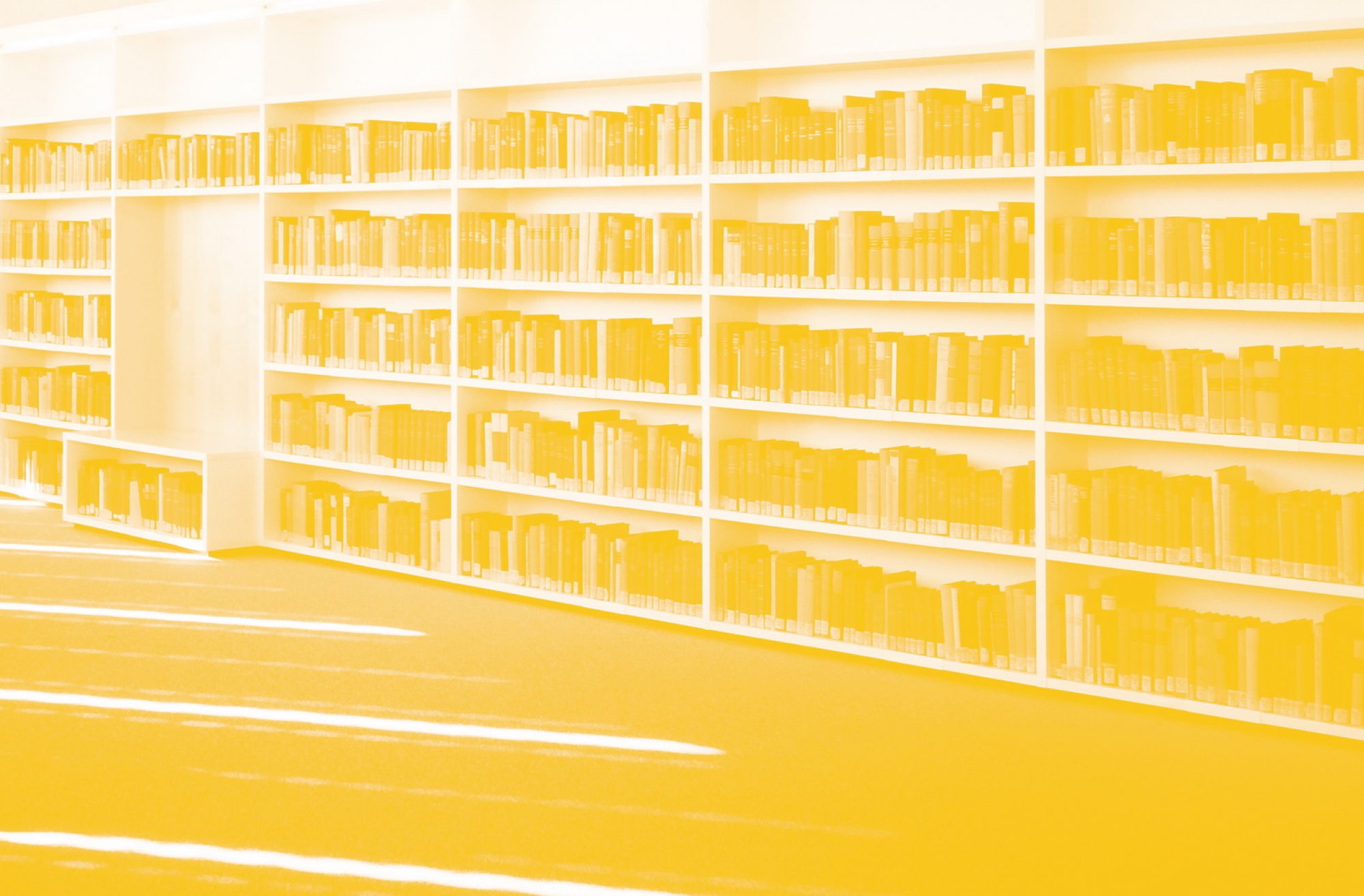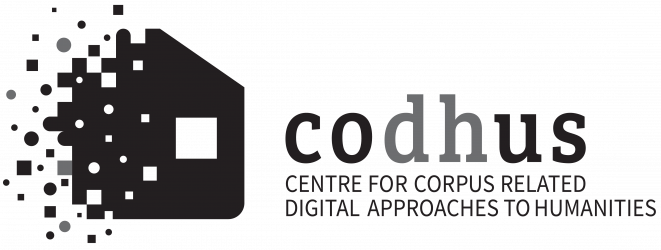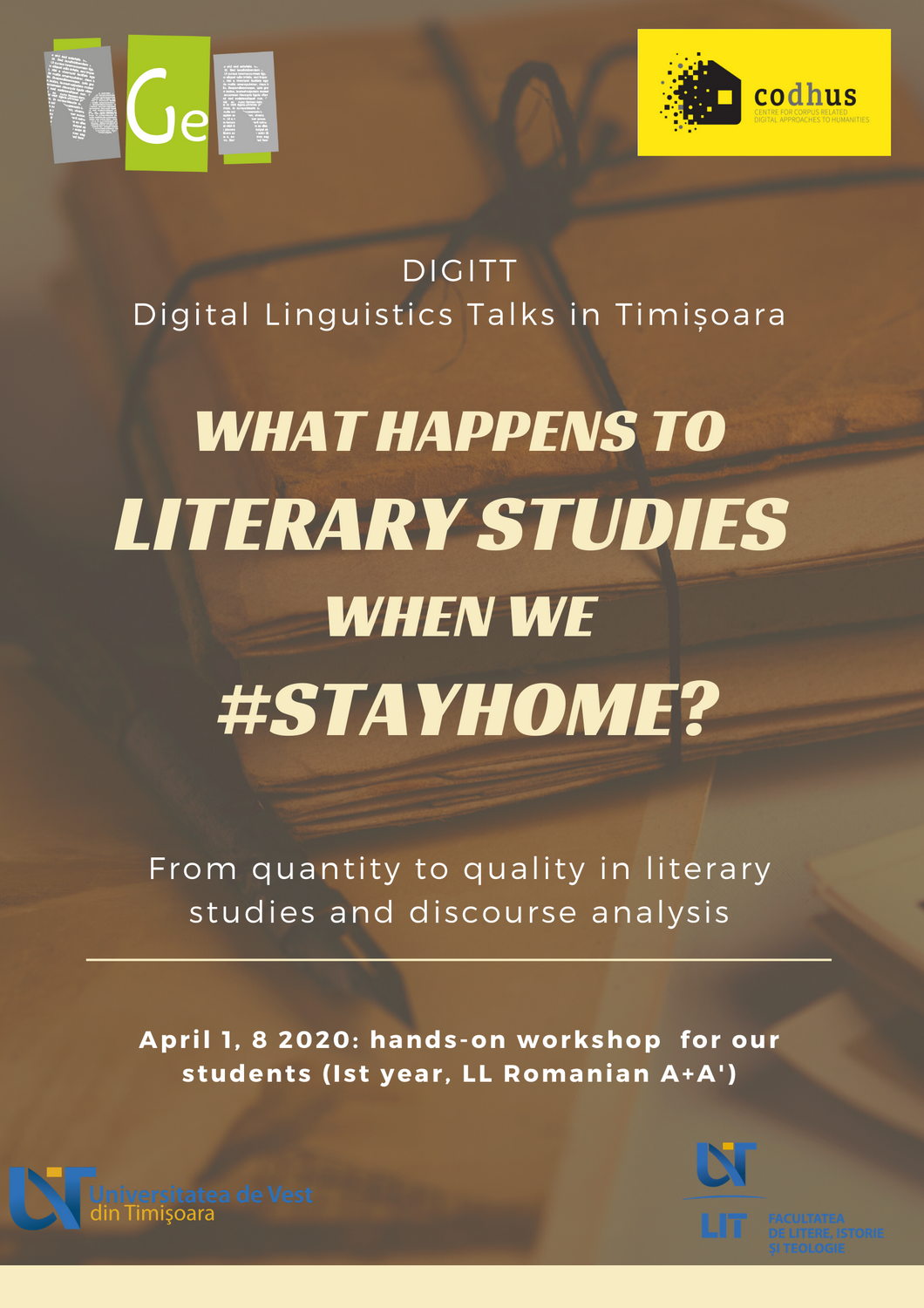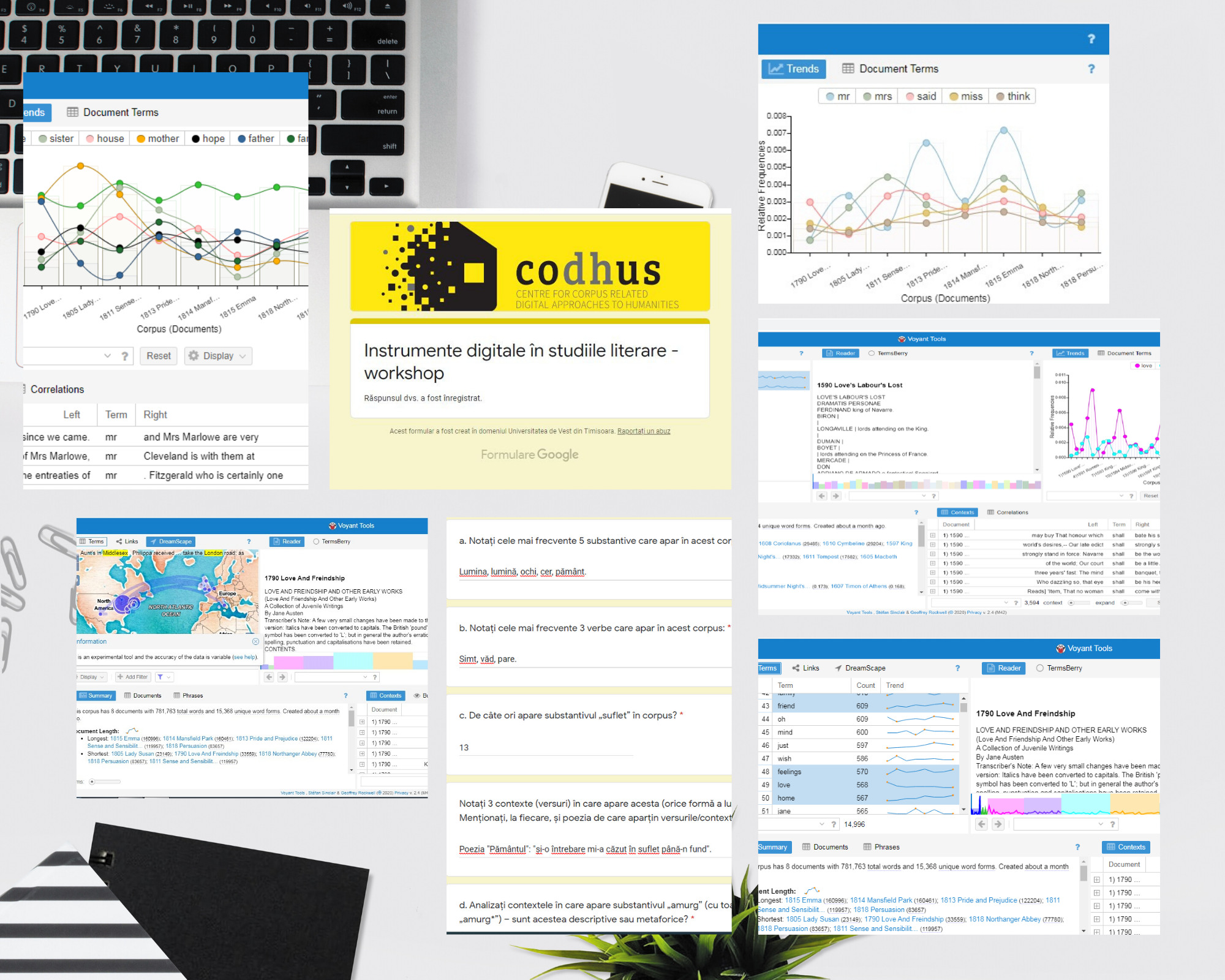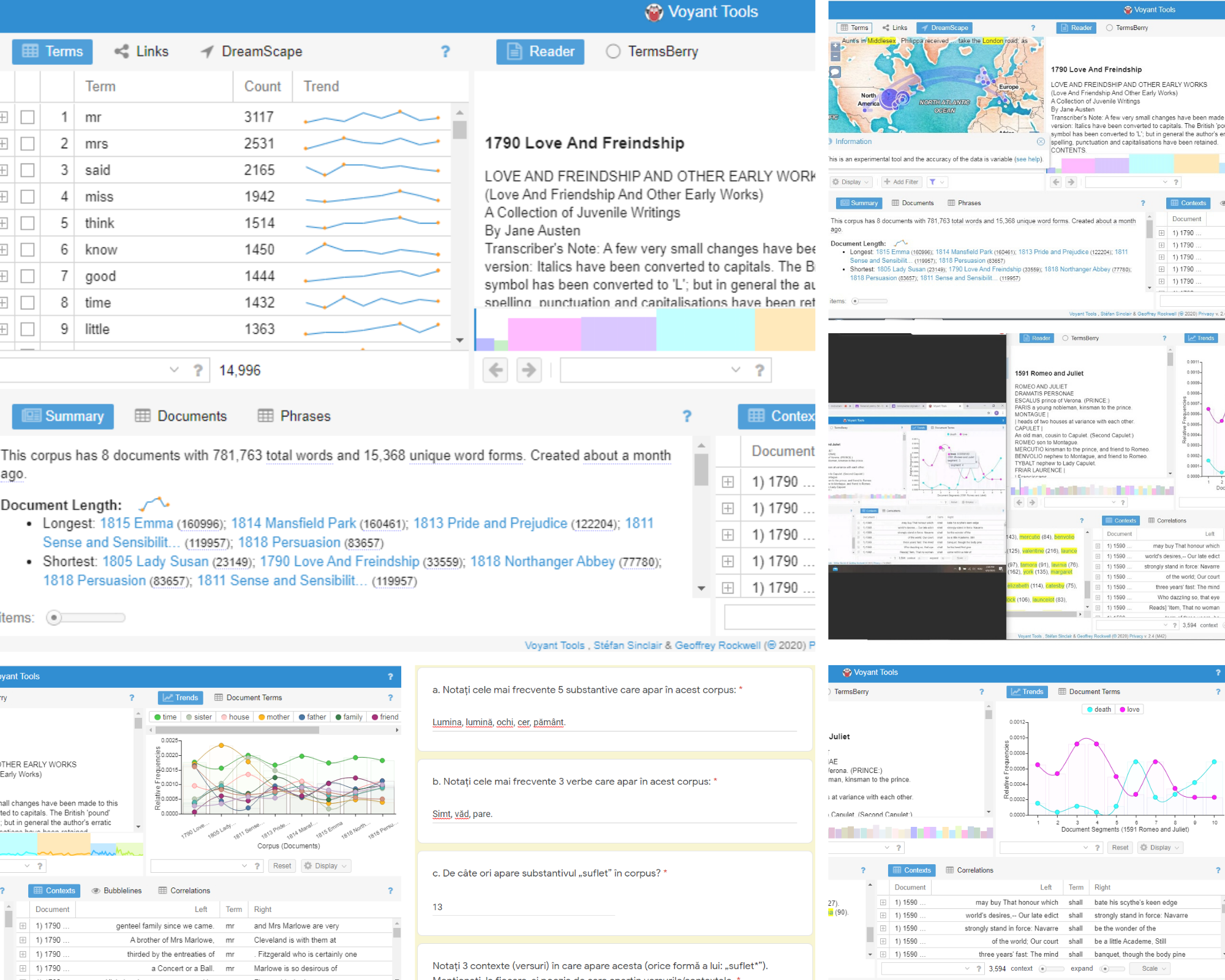Between the 1st and 8th of April 2020, students at the specialization Romanian A+A’ (first year) of the Faculty of Letters, History and Theology participated in a new workshop of the DIGITT series (Digital Linguistics Talks in Timisoara), entitled What happens to literary studies when we #stayhome? From quantity to quality in literary studies and discourse analysis. Making use of the context in which the educational process of the West University of Timisoara takes place online, the meetings were prepared as hands-on workshops, in which the students could utilise free tools for corpus analysis, tested on a collection of texts available online or provided by the faculty members.
Initially, the participants were presented with a few functions of Voyant tools, on the basis of a corpus comprised of summaries written by students. The purpose of the exercise was to check the texts written by the students, identifying key words and frequently used syntaxes, to analyse the efficiency with which the participants had extracted the main ideas and the utilised language.
Next, the students completed a worksheet on the basis of three literary corpuses: the volume Poemele luminii by Lucian Blaga, the works of W. Shakespeare and the novels of Jane Austen (the last two contained by Voyant tools). In the first part the quantitative analysis represented the base of a hermeneutical validation, identifying the most frequent nouns, verbs, metaphorical contexts, aspects which contribute to the argumentation of the metaphorical, of subjectivity, of the sensory character (matters which can be put in relation with the iridescence of the volume). The second part focused on the “bloody”, “deadly” plays of the English playwright and on the relationship between love and death in Romeo and Juliet. The last practical part looked at frequent themes and spatial clues in Jane Austen’s novels.
At the end of the virtual meeting, the students filled out a feedback questionnaire in which they could express their opinion on the activity. The participants appreciated, in particular, the quick identification of the contexts in which a certain term is found; most of them declared themselves happy with the selected corpuses and tools used – even if their use on a mobile phone is not as simple; moreover, the students would consider useful such quantitative analyses of other Romanian author’s works, or authors studied in their particular fields. The fact is that this workshop allowed our students – regardless if they are in Romania, Hungary or the Republic of Moldova – to participate in an interactive activity, which goes to show that teaching in a digital system has a series of opportunities just waiting to be implemented!
The workshop poster:
Photos with the students’ activity:
We thank the following students for their screenshots: Florina Andercău, Dayana Aniței, Emanuela Badea, Flavia Barbu, Andreea Diac, Alexandra Drăgoi, Raluca Duță, Romina Hălmăgeanu and Leila Stoichiță!
